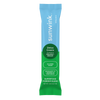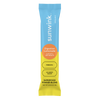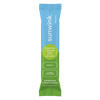Organic vs. Non-Organic: A Conscious Eater’s Guide

You might think that organic food is automatically better than non-organic options, but that’s not always the case.
For some foods, organic and non-organic options are virtually the same. Plus, organic food come at higher prices, seriously racking up your grocery bill. But at the same time, you want to avoid fertilizers and pesticides — which some non-organic foods are full of.
So, what should you do? Make the switch over to organic produce or keep buying the conventional stuff? Keep reading this guide from Sunwink to find out!
What’s the Difference Between Organic & Non-Organic Food?
The main difference between organic and non-organic food products is that the former is grown without any insecticides, synthetic fertilizers, or the use of genetically-modified organisms (GMOs).
Organic products use a type of farming that is natural. That’s not to say that no pesticides are used. However, the ones that are used are found in nature and are generally much less toxic.
Plus, organic farming practices are more friendly to the environment. This means that the soil is allowed to regenerate — A.K.A. take a breather — before more organic crops are planted in it.
Companies can’t just say that their produce is organic without backing up their claims — so you can rest easy knowing your food is truly free of nasty chemicals and toxic herbicides. If you see “certified organic” on the label, you can be sure that the food is produced according to strict standards verified by a third-party organization.
On the other hand, non-organic food is grown using synthetic pesticides, fertilizers, growth hormones, and genetic engineering. These chemicals are found in our food (in varying amounts) and make their way into our bodies, where they can cause all sorts of negative side effects.
What are these side effects? Read on to the following section to find out!
What Are the Risks of Consuming Pesticides?
There are many different types of pesticides linked to side effects — some of which are acute and some of which are chronic.
Some of these side effects may include:
- Nausea
- Diarrhea
- Reproductive problems
- Neurological issues
- Hormonal imbalances
The side effects someone experiences depend on the pesticide and how much they’ve been exposed to. For instance, farmers who use large quantities of pesticides are much more likely to develop serious problems than those who occasionally eat conventional produce from the grocery store.
Pesticide residue can be found in many everyday foods and beverages, including water, wine, and juice. And even if someone thoroughly washes their produce, they may not be able to rule out pesticide exposure.
Someone’s health status also plays a big role in which side effects they may suffer. Someone who’s immunocompromised, for instance, may be less able to metabolize pesticides than someone healthy. And toddlers, infants, and children, as well as pregnant mothers, may be extra sensitive to the effects of pesticides.
Is It Safe To Consume Pesticides?
Some public organizations, such as the Environmental Protection Agency (EPA), set strict standards for the amounts of pesticides that can be used on crops. These amounts are based on the toxicity of a given pesticide, which varies according to which one farmers use.
According to these standards, the pesticides used are set at a very low level — far below what could be harmful. However, these standards are based on the normal adult population and don’t include children, pregnant women, and those with health problems.
Different countries have different standards for what’s considered safe. For instance, in the U.S., the default is set to 0.1 parts per million, while some European countries even have lower standards. Some countries outright ban some pesticides that haven’t been thoroughly tested.
As you can see, not all countries have the same standards. So, if you’re buying produce imported from another country, you may be exposing yourself to pretty high levels of pesticides.
Even if your country has strict pesticide standards, that doesn’t necessarily mean that they’re being followed.
Third-party organizations can’t test all the produce that’s being grown, so it’s possible for some farmers to get away with using unsafe quantities of these chemicals.
Testing is done on individual pesticides, but farmers use mixtures of them, which are also called formulations. Well, it turns out that formulations may be much more toxic than their constituents, which is another reason not to trust all standards set by public organizations.
Does That Mean You Should Only Buy Organic?
Not necessarily.
When it comes to produce, it may be completely unnecessary to buy certain fruits and veggies in the organic section. If it has a thick rind — which is the case with fruit like pineapples and vegetables like avocados — then pesticides shouldn’t be much of a concern. In this case, buying organic would only rack up your grocery bill.
That’s not to say that buying organic is a waste of money. Some fruits and vegetables are directly sprayed with pesticides, which makes them less safe for eating on the regular. As a rule of thumb, if it doesn’t have a thick skin, you may want to buy the organic version of it.
Some claim that organic food has a higher nutritional value than non-organic food. This is especially the case with produce grown in nutrient-rich soil, which may have higher levels of vitamins, minerals, and even some antioxidants.
However, just because something is organic, doesn’t mean that it’s guaranteed to have a higher nutritional content. Instead, look for food that’s rich in color (think, for instance, pale red vs. bright tomatoes). Also, consider how something tastes. If your produce tastes watered-down, it’s probably less nutritious than something bursting in flavor — whether organic or not.
What Are Practical Tips When Shopping for Produce?
All in all, you can buy a mixture of organic and non-organic produce — without worrying about your health.
Here are some tips to help you find balance:
- Buyfrozen: If fresh organic produce is too expensive, frozen options may be easier on your wallet. Plus, they can keep for months in the freezer without preservatives, so you don’t have to worry about eating them right away.
- Wash all produce thoroughly: Even if you’re buying organic, wash your produce as well as you can. You can use a produce scrubber to help you. Another trick is to wash your produce with salt water, which removes far more pesticides than plain water alone.
- Visit your local farmer's markets: It’s a great idea to support local farmers instead of giving all your money to large agricultural companies. Plus, it allows you to learn how your produce is grown (most likely, it will be organic).
- Choose quality over quantity: Organic food tends to be higher in nutrients like vitamins and minerals, which means you need less of it to get the same health benefits as non-organic produce. If you’re buying organic, don’t worry about getting your eight servings. With nutrient-dense food, less can be just as beneficial.
- Learn to read labels: When shopping for groceries, it’s always a good idea to carefully read food labels. Organic food usually has an organic certification sticker on it that proves its authenticity. We’ll explain the different labels you can find on organic food below.
- Pick your battles:If you can buy all your food organic, that’s great! But if that’s not an option, then be picky about which foods you buy organic.
What Foods Should I Buy Organic?
The Environmental Working Group (EWA) tests popular fruits and vegetables for their levels of pesticides. There are some foods — formerly known as “the dirty dozen” — that you should buy organic as often as you can. These include:
- Spinach
- Kale
- Collard Greens
- Bell peppers
- Hot peppers
- Tomatoes
- Celery
- Strawberries
- Apples
- Pears
- Peaches
- Grapes
- Cherries
- Nectarines
If you can’t buy organic foods, try to consume them only once in a while — or not at all.
But remember: Getting your nutrients is super important. To make up for what you’re missing, try supplementing with Sunwink’s Detox Greens Superfoods Powder or other delicious Superfood powders and sparkling Superfood tonics.
Our Detox Greens Superfoods Powder contains a whole serving of veggies in each 2-teaspoon serving, and is packed with anti-inflammatory Celery, detoxifying Dandelion, and nutrient-dense Spirulina.
How Do You Read an Organic Label?
When you decide to eat organic, there’s one last step to ensure you’re doing it right: Reading the labels.
These are some of the labels that tell you that something is free of synthetic pesticides and fertilizers:
- “100% USDA Organic”: This label doesn’t only apply to produce, but to various other products like cereals, dairy, and meat. It means that this food is made only from organic ingredients and is free from pesticides, fertilizers, antibiotics, and hormones.
- “Organic”: These products are almost all organic — 95% organic, to be precise. They may contain some synthetic ingredients, but only in small amounts.
- “Made With Organic Ingredients”: These products have to be made up of at least 70% organic ingredients. While it’s not as ideal as something that’s 100% organic, it’s still better than many conventional foods.
Supporting Wellness With Organic Food
When consumed in large quantities, synthetic fertilizers and pesticides can be pretty harmful.
As a rule of thumb, if you can’t peel it, you should try to buy it organic.
At Sunwink, we take healthy eating pretty seriously. That’s why all our Superfood powders and sparkling Superfood tonics are made with organic ingredients — so you can seriously supercharge your wellness journey.
Sources:
Chemical Pesticides and Human Health: The Urgent Need for a New Concept in Agriculture | PMC
Setting Tolerances for Pesticide Residues in Foods | US EPA
Major Pesticides are More Toxic to Human Cells Than Dheir declared Active Principles | NCBI






